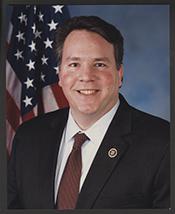0
0
0
Saving America's Future by Educating Kids Act of 2021
12/30/2022, 3:18 AM
Summary of Bill HR 6324
Bill 117 HR 6324, also known as the Saving America's Future by Educating Kids Act of 2021, is a piece of legislation introduced in the US Congress with the goal of improving education for children across the country. The bill aims to address various issues within the education system and provide support for students, teachers, and schools.
One key aspect of the bill is its focus on increasing funding for schools in low-income areas. This includes providing additional resources for classroom supplies, technology, and professional development for teachers. The bill also aims to reduce class sizes and improve teacher-student ratios in order to enhance the quality of education for all students.
In addition, the Saving America's Future by Educating Kids Act of 2021 includes provisions for expanding access to early childhood education programs, such as pre-kindergarten and Head Start. These programs are designed to give children a strong foundation for learning and development, particularly in underserved communities. Furthermore, the bill addresses the issue of student loan debt by providing relief for borrowers and implementing measures to make higher education more affordable. This includes expanding Pell Grants and other financial aid programs, as well as offering loan forgiveness options for individuals working in public service professions. Overall, the Saving America's Future by Educating Kids Act of 2021 seeks to improve the quality of education for all children in the United States, particularly those in low-income communities. By addressing issues such as funding disparities, access to early childhood education, and student loan debt, the bill aims to create a more equitable and effective education system for future generations.
One key aspect of the bill is its focus on increasing funding for schools in low-income areas. This includes providing additional resources for classroom supplies, technology, and professional development for teachers. The bill also aims to reduce class sizes and improve teacher-student ratios in order to enhance the quality of education for all students.
In addition, the Saving America's Future by Educating Kids Act of 2021 includes provisions for expanding access to early childhood education programs, such as pre-kindergarten and Head Start. These programs are designed to give children a strong foundation for learning and development, particularly in underserved communities. Furthermore, the bill addresses the issue of student loan debt by providing relief for borrowers and implementing measures to make higher education more affordable. This includes expanding Pell Grants and other financial aid programs, as well as offering loan forgiveness options for individuals working in public service professions. Overall, the Saving America's Future by Educating Kids Act of 2021 seeks to improve the quality of education for all children in the United States, particularly those in low-income communities. By addressing issues such as funding disparities, access to early childhood education, and student loan debt, the bill aims to create a more equitable and effective education system for future generations.
Congressional Summary of HR 6324
Saving America's Future by Educating Kids Act of 2021
This bill directs the Department of Education (ED) to develop and support implementation of an evidence-based, K-12 curriculum on the dangers of substances of misuse, including opioids, vaping, and synthetic drugs. ED must review and update the curriculum every two years.
ED must award grants to state educational agencies to implement the evidence-based curriculum. In awarding these grants, ED must give priority to those states that have experienced the highest drug overdose death rates.
Read the Full Bill
Current Status of Bill HR 6324
Bill HR 6324 is currently in the status of Bill Introduced since December 16, 2021. Bill HR 6324 was introduced during Congress 117 and was introduced to the House on December 16, 2021. Bill HR 6324's most recent activity was Referred to the House Committee on Education and Labor. as of December 16, 2021
Bipartisan Support of Bill HR 6324
Total Number of Sponsors
1Democrat Sponsors
1Republican Sponsors
0Unaffiliated Sponsors
0Total Number of Cosponsors
2Democrat Cosponsors
0Republican Cosponsors
2Unaffiliated Cosponsors
0Policy Area and Potential Impact of Bill HR 6324
Primary Policy Focus
EducationAlternate Title(s) of Bill HR 6324
Saving America's Future by Educating Kids Act of 2021
Saving America's Future by Educating Kids Act of 2021
To direct the Secretary of Education to develop and disseminate an evidence-based curriculum for kindergarten through grade 12 on the dangers of vaping and misusing opioids, synthetic drugs, and related substances.
Comments
Sponsors and Cosponsors of HR 6324
Latest Bills
Providing for congressional disapproval under chapter 8 of title 5, United States Code, of the rule submitted by the Bureau of Land Management relating to "Central Yukon Record of Decision and Approved Resource Management Plan".
Bill HJRES 106December 12, 2025
Providing for congressional disapproval under chapter 8 of title 5, United States Code, of the rule submitted by the Bureau of Land Management relating to "North Dakota Field Office Record of Decision and Approved Resource Management Plan".
Bill HJRES 105December 12, 2025
Holocaust Expropriated Art Recovery Act of 2025
Bill S 1884December 12, 2025
Providing for congressional disapproval under chapter 8 of title 5, United States Code, of the rule submitted by the Bureau of Land Management relating to "Miles City Field Office Record of Decision and Approved Resource Management Plan Amendment".
Bill HJRES 104December 12, 2025
Enduring Justice for Victims of Trafficking Act
Bill S 2584December 12, 2025
National Defense Authorization Act for Fiscal Year 2026
Bill S 1071December 12, 2025
Technical Corrections to the Northwestern New Mexico Rural Water Projects Act, Taos Pueblo Indian Water Rights Settlement Act, and Aamodt Litigation Settlement Act
Bill S 640December 12, 2025
Department of Defense Appropriations Act, 2026
Bill HR 4016December 12, 2025
End the Fed’s Big Bank Bailout Act
Bill S 2113December 12, 2025
Federal Reserve Transparency Act of 2025
Bill S 2327December 12, 2025
Saving America's Future by Educating Kids Act of 2022
Bill S 5105December 29, 2022

